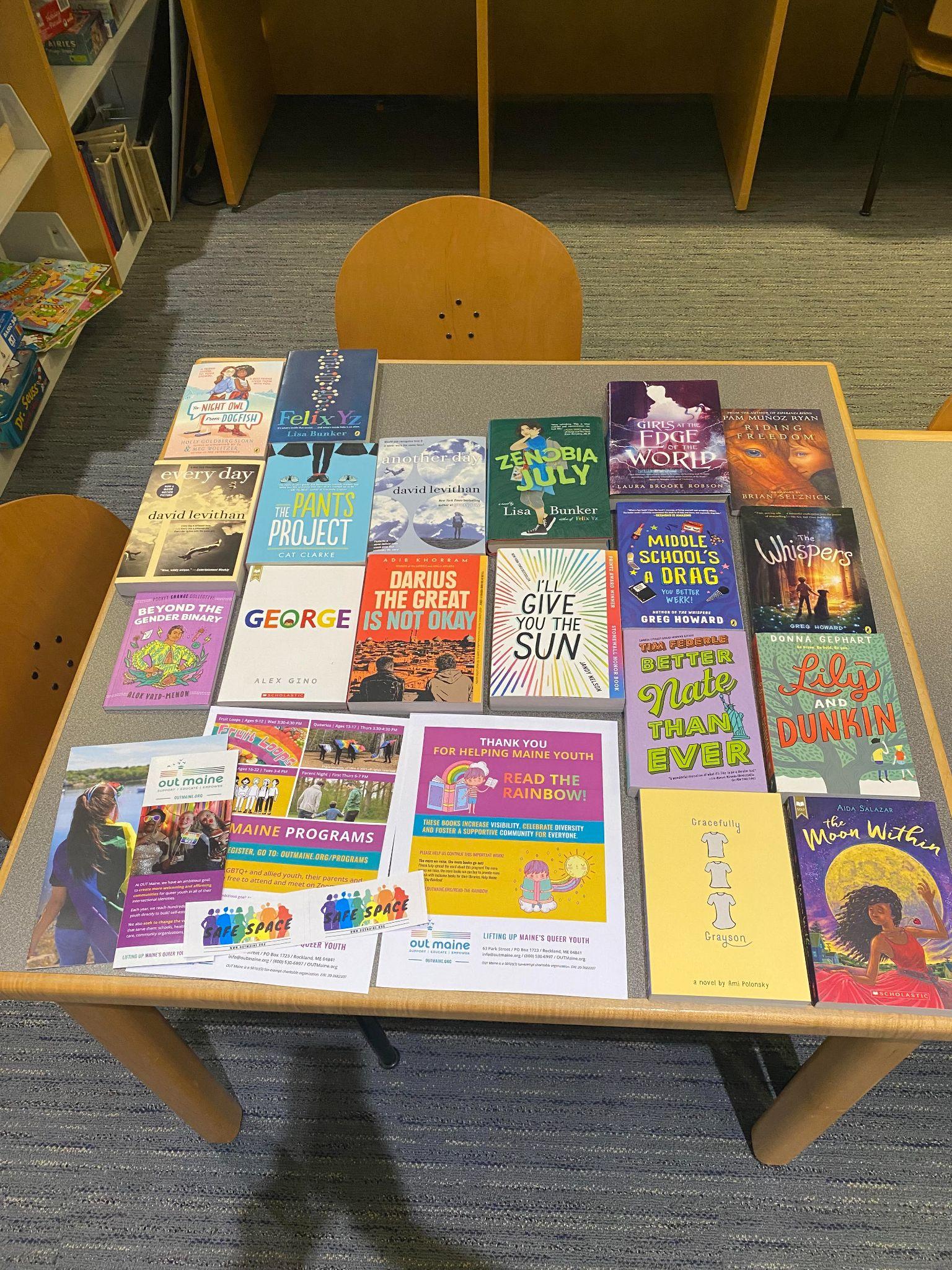“Sorry this book is coming back late. It’s just — I never expected to read a book that was so close to my own life. Like. Never. With some weirdly similar and specific details! So I had to read it twice, then I made my dad, sister, and boyfriend read it.”
The student was returning the book Gender Queer to their high school library somewhere here in Maine. This reader’s response is exactly why our LGBTQ+ youth need books in their libraries that reflect their lived experiences — as a reminder that they’re not alone, that they exist, and that their stories matter.
Gender Queer is a graphic novel memoir penned by Maia Kobabe about the process of discovering eir self-identity as a nonbinary and asexual person.
This award-winning book also happens to be the #1 most challenged book in 2021. What’s a challenge? Any attempt to remove or ban the book from a public or school library collection.
In 2021 the number of challenged books reported to the American Library Association’s Office for Intellectual Freedom was higher than in the twenty years they’ve been documenting attempted bans, and 2022 is on target to exceed that number. This disturbing trend is a coordinated effort engineered by national groups with an anti-LGBTQ+ agenda.
First, a little background on what we’re seeing here in Maine, then some ways you can be part of the solution to support LGBTQ+ youth.
It’s about way more than banning books with LGBTQ+ content.
Over the past two years, there’s been a similar spike in book challenges in our state. “Gender Queer is easily the most challenged book in Maine,” according to Karen Silverman, the Intellectual Freedom Chair for the Maine Association of school Libraries (MASL).
Recently, OUT Maine’s Executive Director Sue Campbell was invited to attend a school board meeting at RSU#40 where Gender Queer was on the agenda. From Campbell’s statement at the meeting:
“While this appeal was about this specific book, this conversation is not about one particular award-winning book in a local school library. It is a national issue about adults who have decided to use at-risk students for political gain and further divide our country, regardless of the impact that may have on these students. Whether it is supportive policies, inclusive curriculum, or books in the library, every effort a school makes to be welcoming and inclusive is being questioned and attacked at school board meetings, through the negative press, and on social media.”
As Campbell says, this is a political agenda — and unfortunately, our LGBTQ+ youth are at the center.
During the lead-up to the election, an ad campaign falsely stated that Governor Mills wanted to put pornographic materials in the hands of all Maine students, specifically naming Gender Queer as an example.
According to MPBN, the campaign was funded by Maine Families First, but it’s also “part of a national campaign … by the American Principles Project, or APP, a nonprofit with officers associated with another group opposing same-sex marriage.”
Approximately 300 people attended the public school board meeting in MSAD#40 with Campbell, and ultimately the school board voted to keep Gender Queer on the high school library’s shelves. Not all communities are so lucky.
“But parents have rights!”
True! As the parent or guardian of a child in a public school, you absolutely have the right to decide what your child may read or have access to.
But no parent has the right to decide what your child may access.
If you’re the parent or guardian of a child who has nightmares about sharks, it’s OK to ask your school librarian not to check out any books about sharks to your child. But it’s not OK for you to ask the librarian to remove all the books about sharks from the library because a lot of other kids love those shark books.
This is why Maine public schools are required to abide by state-mandated school board policies, including an Instructional and Library Materials Selection Policy as well as a Challenge of Instructional Materials Form.
These two policies are what guide the formal challenge process, and while districts may make slight adjustments, the basic procedure includes filling out a challenge form and seeking resolution at the school level first. If a resolution isn’t found, a formal review committee is appointed by the superintendent to evaluate the material in question, and make a recommendation to the superintendent.
Unfortunately, there are instances where the process is circumvented quietly. A school official who checks out or just takes the “controversial” book and doesn’t return it. A parent who has their child check out a book and then the child “loses” it.
The ones who are really losing out are the students — and not just the kids who identify as LGBTQ+. Reading is a pathway to building self-knowledge, awareness, and empathy for the experiences of others. It’s one way that kids learn how to be good humans.
Be part of the solution.
All Maine kids deserve to be valued and accepted for who they are, in every space.
Every Maine kid deserves to thrive.
Help us change the narrative for Maine’s LGBTQ+ youth and make your voice heard. Join OUT Maine in our ambitious goal to create more welcoming and affirming communities for Maine’s diverse queer youth in all of their intersectional identities.

Photo: LGBTQ+ books in a school library. These books were donated to the library as part of the Read the Rainbow program.
